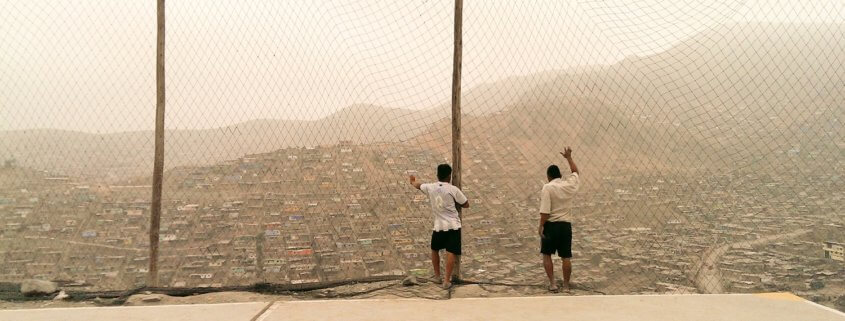Four Approaches to Poverty
Continuing with our series discussing poverty, Peru country manager Daniel Salazar talks about four approaches to poverty.
On the last blogpost about the concept of poverty, we briefly discussed the traditional conception of poverty as well as suggested an alternative and more comprehensive understanding of it. But are there other conceptions of poverty besides these two? Here we outline four approaches to poverty:
The monetary approach
This is the traditional approach, which most people and experts hold (even if they don’t know they do). It basically defines poverty as the lack of material resources, i.e. income. That is, people are poor if they don’t have money.
Capability approach
The Capability approach, proposed by novel prize laureate Amartya Sen, goes beyond the materialistic understanding of poverty of the monetary approach. It notes that material resources are not enough to guarantee well-being since their presence doesn’t entail their enjoyment. As we mentioned before, a rich person with a disease might not be able to enjoy his wealth. He may actually be greatly deprived, or, in other words, be poor. Considering this, the capability approach defines poverty as the lack of opportunities to enjoy the kind of lives people value. The approach calls this opportunities “capabilities, ” and gets its name from this concept.
Social Exclusion
The Social Exclusion approach also notes the narrowness of the monetary approach, but focuses on the processes of marginalization to specific groups. For example, some people may have good jobs, but if they are marginalized by the majority because of their race/religion/ethnicity/etc., then they cannot be said to have a good life. According to this approach, a person may be suffering poverty if he or she is being excluded by other members of society.
Participatory approaches
Participatory approaches do not bother to ask the experts what poverty is. Rather, they seek to understand poverty from the perspective of the poor. They gather the testimonies of greatly deprived people on what poverty is. Based on these testimonies, they note common themes and propose a broad conception of poverty which includes many dimensions.
The right approach
These four approaches to poverty have different focuses and note many important aspects of what poverty is. But we would be reducing it if we were to equate one of those aspects to poverty itself. Rather, the variety of focuses should lead us to conclude first that poverty is not about the lack of one thing, but of many. In other words, poverty is multidimensional.
A second conclusion would be that experts may not always be capable of understanding or conveying all that poverty is. The monetary approach clearly does not encompass all the poor suffer, nor is social exclusion the only or even main struggle of the poor (in communities with great social cohesion there could be many poor). Just as the participatory approaches and the capability approach suggest, we should also listen to what the people themselves experience and value. Only then would we be able to understand what poverty is.
If poverty is multi-dimensional, and our conception of poverty should be informed by the testimonies of the poor, the key to understanding poverty is to find out what the poor say are the dimensions of poverty. That’s why, in a sense, no matter how much you have studied, you will never understand poverty unless you hear their testimonies.
This is one of the reasons why Global Volunteers service programs are so great. Besides directly helping deprived people, they provide a chance for volunteers to connect with them and understand their struggles. One of the benefits of volunteering is that it works as a unique way to empathize and open your eyes to poverty and to other human beings.
You might be interested in learning how stunting plays a role in generational poverty. Watch this video on the Reaching Children’s Potential (RCP) Demonstration Program in Tanzania to see how parents and Global Volunteers are working hard to eliminate both in Ukwega Ward.




Leave a Reply
Want to join the discussion?Feel free to contribute!